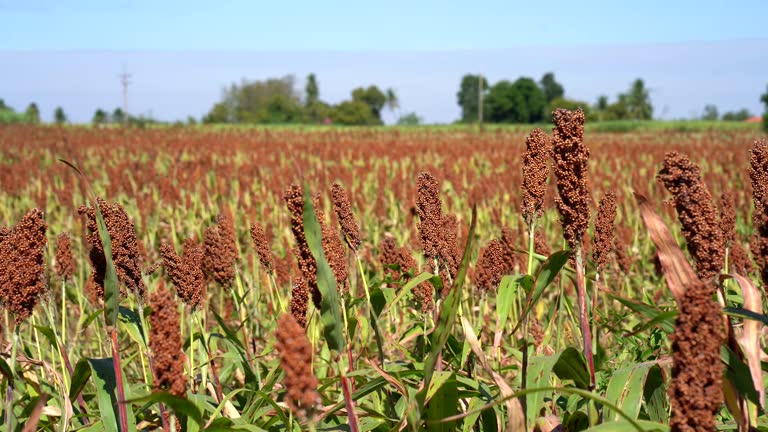For Siphiwe Sithole, founder of African Marmalade, food is more than sustenance—it’s heritage. Since 2015, she has worked to reconnect South Africans with indigenous crops, empowering smallholder farmers while promoting healthier diets.
Raised in rural Mpumalanga by her grandmothers, Sithole grew up eating a diverse range of home-grown foods—Bambara beans, sorghum, African pumpkin leaves—that were cultivated through traditional, sustainable methods. But living in Cape Town and travelling across Africa made her realise how rare these foods had become in urban South Africa.
“In places like Zambia and Tanzania, I was experiencing amazing indigenous foods, but I couldn’t find them back home,” she recalls.
The African Marmalade Approach
Sithole’s business champions ancient grains, legumes, leafy greens, and indigenous vegetables. Crops like red and white sorghum, pearl millet, and drought-tolerant legumes such as cowpeas and pigeon peas provide resilience against climate extremes. Morogo varieties—amaranth, spider plant, jute mallow, and black nightshade—offer nutrient levels that surpass many conventional greens.
One crop close to her heart is African pumpkin. Its leaves are rich in iron, the seeds are a protein-rich snack, and the pumpkins themselves store for up to a year. By linking such crops to modern markets, Sithole hopes to lift small-scale farmers beyond subsistence.
Health and Cultural Value
Sithole laments the shift from two wholesome daily meals to constant snacking on nutrient-poor convenience foods. She sees indigenous crops as key to reversing this trend and improving public health. Research by South Africa’s Agricultural Research Council supports her advocacy, showing morogo often outperforms conventional greens in vitamin and mineral content.
To expand awareness, she partners with chefs, caterers, and niche retailers aligned with the slow food movement, envisioning restaurant menus that feature dishes like expertly prepared goat meat with pearl millet and pumpkin leaves.
Seeds, Sustainability, and Community
Sithole coordinates a network of growers nationwide and maintains a seed bank, freely distributing varieties suited to different regions. This decentralised approach ensures supply continuity and encourages seed-sharing—a tradition she sees as central to food sovereignty.
“Whoever controls the seeds dictates what you eat,” she says.
Her dream extends beyond rural fields to urban food gardens, calling on property developers to integrate edible landscapes into their designs. For her, food growing brings health, purpose, and community resilience.
Women at the Heart of Agriculture
As South Africa marks Women’s Month, Sithole stresses that women have always been the continent’s primary crop producers, responsible for feeding families and shaping community nutrition. Through her “seed collective,” she builds a sisterhood of growers who share resources and knowledge.
“We grow the food; we decide what is good for our communities,” she says.
For Sithole, reviving indigenous crops isn’t just about agriculture—it’s about restoring a culture of abundance, where healthy food is available to all, and farming is both sustainable and empowering.


